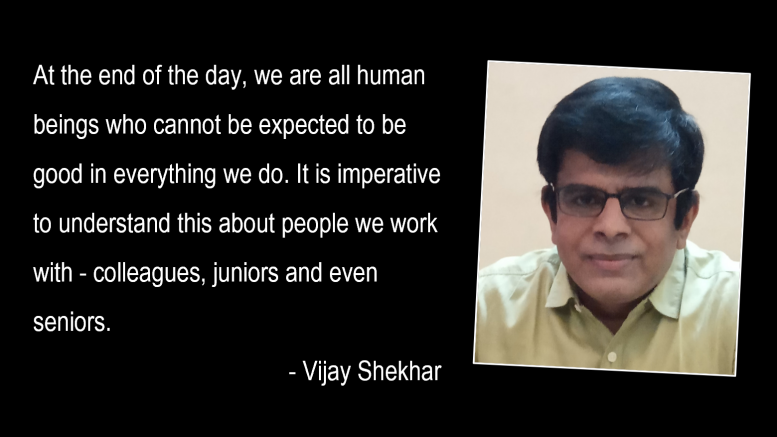Many of us would have heard the story of a boy who decides to learn judo despite losing his left arm in a devastating car accident. He begins lessons with an old Japanese judo master. He does seemingly well, and so is unable to understand as to why after months of training the master had taught him only one move. One day he gathers courage and asks the master as to why he isn’t being taught more moves. The master replies that what he has taught is the only move the boy would ever need to know. Not quite understanding, but believing in his teacher, the boy kept training. Several months later, the master takes him for his first competition, wherein his opponent is bigger, stronger and more experienced. The match is tough, but after sometime his opponent becomes impatient and charges towards him. The boy deftly uses that ‘one move’ and wins the match. Later when they are reviewing every move in the competition, the boy again asks the master as to how he could win the competition with only that one move. The master coolly replies, “The only known defence for that ‘one move’ is for your opponent to grab your left arm.”
This inspirational story about a weakness becoming the strength has a larger moral for the Corporate world. At any workplace, each and every individual is good with some things, just about okay at others, and really bad at some things (some of which might be really important). At the end of the day, we are all human beings who cannot be expected to be good in everything we do. It is imperative to understand this about people we work with – colleagues, juniors and even seniors. Art lies in bringing out the best in everyone by harnessing what each one is good at. Let me explain this with an example.
I know a PR professional in Chennai who is not well conversant in English and hence cannot be made to interface with certain clients who have a very professional culture and are very particular about etiquettes and protocols. He cannot do any kind of content (press release, authored article, presentations etc.). The only language he speaks fluently is Tamil, his mother tongue.
While everyone else speaks to the English Mainline & Financial media in English to get a client interaction done by explaining the importance of a concept and why it could make for a good story, this gentleman does not have any qualms about speaking to them in Tamil. His humble yet confident conversations mostly start with a unique (in terms of delivery style) and loud “Eppadi irukeenga? Sapteengla?”…it simply translates to “How are you? Had food / lunch?” And after his loud pleasantries in Tamil, he starts his simple pitch for an interaction with just the client name and indicating that their CEO (almost every spokesperson is a ‘CEO’ for him) would do the interaction. He generally talks nothing about the messaging. And most of the media persons (including the ‘no nonsense’ ones who have set strict norms on how communications consultancy personnel should approach them) love that ‘politely rustic’ or ‘rustically polite’ element when he speaks. Many a time, he has managed to crack media interactions for clients which others could not with all their reasoning and convincing skills.
Somewhere his not being fluent in English (somewhat like the lost left arm of the boy in the story) has actually endeared him to quite a few journalists and also few client representatives who are fine with his colloquial non-English talk as long as he is delivering on work.
Last Word
For any company, it is important to create a culture of turning weaknesses into strengths. When employees make use of their strengths (what they are good at) on the job, the entire company stands to benefit. This results in better employee engagement, motivation and retention. Cultivating a culture of appreciating employee strengths and working around their weaknesses is actually a great way to begin the transformation from being a good place to work to becoming a great place to work.
The views and opinions published here belong to the author and do not necessarily reflect the views and opinions of the publisher.



Be the first to comment on "Everyone is Good at Something"